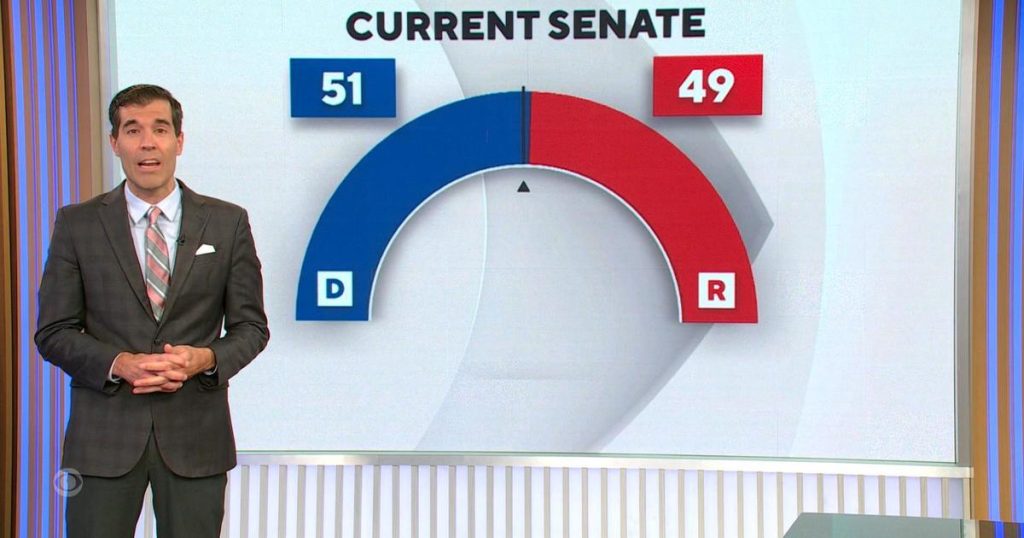On Election Day, not only will Americans be choosing a new president, but the control of Congress will also be up for grabs. Currently, Democrats hold a narrow majority in the Senate, while Republicans have a slim advantage in the House. This means that the outcome of the congressional races will play a crucial role in shaping the legislative agenda and determining the balance of power in Washington. It is expected that both parties will be heavily invested in these races, as the stakes are high for both sides.
The control of Congress is significant as it will determine the ability of the newly-elected president to enact their policy agenda. If one party holds a majority in both the House and the Senate, they will have a much easier time passing legislation and advancing their priorities. On the other hand, if there is divided control, it can lead to gridlock and make it difficult for any major legislation to get through. This is why the upcoming congressional races are crucial for both parties as they seek to gain or maintain control of the legislative branch.
The battle for control of Congress is likely to be fierce, with both parties mobilizing their resources and campaigning aggressively in key districts and states. Democrats will be looking to expand their majority in the Senate and potentially regain control of the House, while Republicans will be working to defend their slim majority in the House and retake control of the Senate. The outcome of these races will also have implications for the balance of power between the executive and legislative branches, as well as for the overall direction of the country’s policy agenda.
The outcome of the congressional races will also have a significant impact on the fate of key legislative priorities, such as healthcare, tax reform, immigration, and climate change. Depending on which party controls Congress, the prospects for passing major legislation on these issues will vary. For example, if Democrats are able to gain control of both chambers, they may be more successful in passing progressive policies on healthcare and climate change. On the other hand, if Republicans retain control of one or both chambers, they may prioritize tax cuts and deregulation.
Overall, the upcoming congressional races on Election Day will be closely watched and highly contested, as both parties vie for control of the legislative branch. The outcome of these races will have far-reaching implications for the ability of the next president to enact their policy agenda and for the direction of the country’s legislative priorities. As voters head to the polls, they will be making critical decisions not only about who will lead the country but also about which party will control Congress and shape the future of American politics. The battle for control of Congress is set to be one of the most important and closely-watched aspects of the 2020 election.


